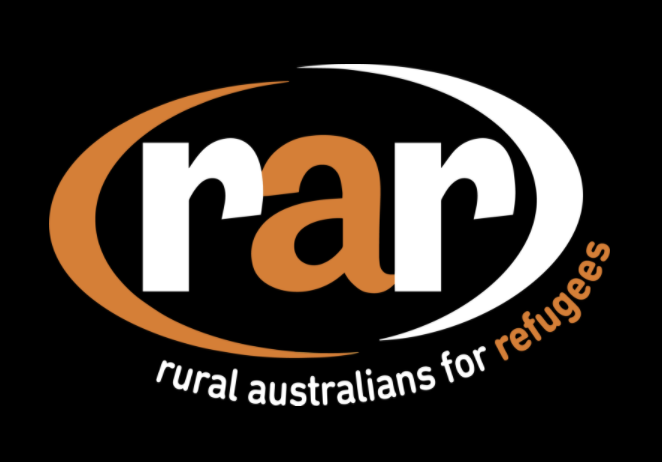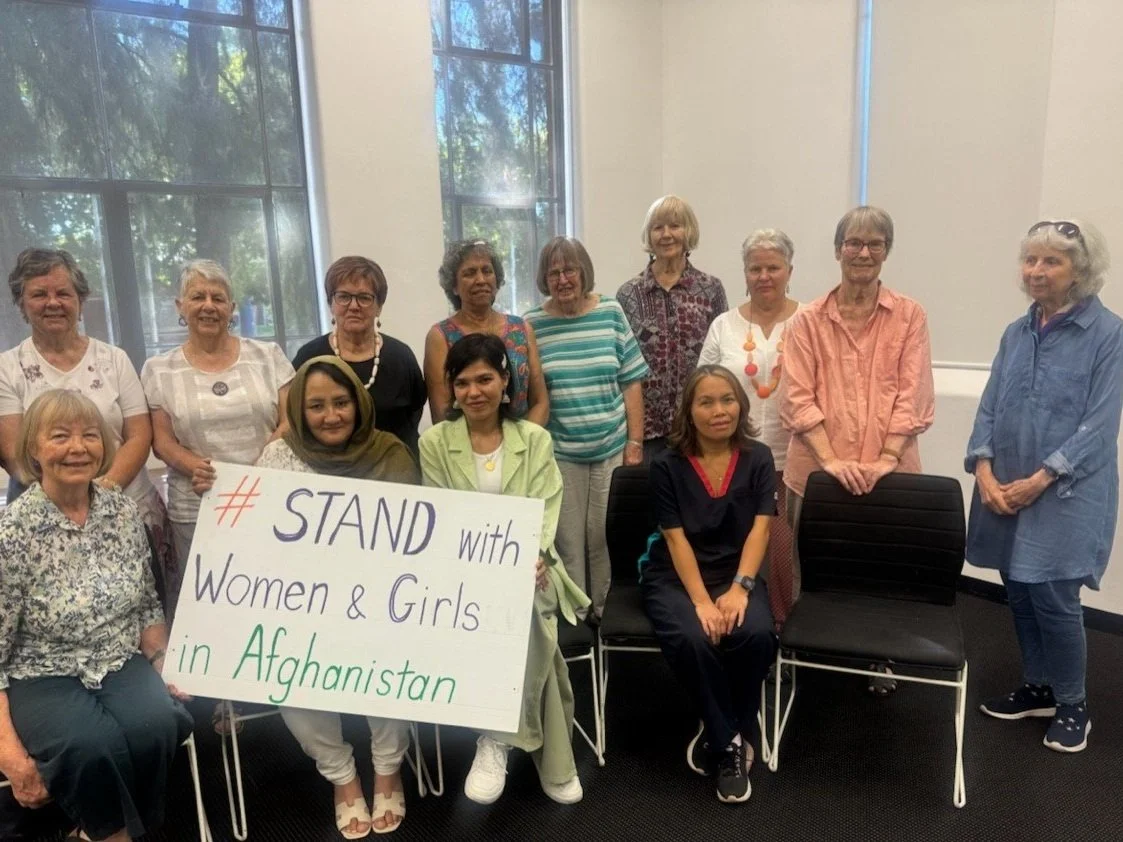Family Reunion Visa reforms needed to protect vulnerable women in Afghanistan
Family Reunion Visa Reforms needed to protect vulnerable women in Afghanistan
8 March
International Women’s Day call for compassion and urgent action on family reunion and safety for women and girls
Refugee advocates around Australia are calling for urgent reform to ensure that Australia’s family reunion visa policies do more to protect vulnerable women in Afghanistan from the Taliban’s policies of gender-based violence.
Australia’s family migration program currently views 23-year-olds as living independently, a narrow definition of family which affects thousands of refugee family members overseas.
This narrow definition places women of all ages at extreme risk in countries such as Afghanistan where women cannot live independently or in safety under the Taliban’s policies of gender-based violence and intimidation (called gender apartheid).
27-year-old Hazara woman and Mansfield local Hamida Samar and her sister Fatemah grew up in an orphanage in Afghanistan and lived with this reality of grave danger for two years after the Taliban’s 2021 return.
“Women simply cannot live independently in Afghanistan. Without the protection of family or a husband, young girls and women are exposed to the daily reality of kidnapping, rape and forced marriage. My sister and I were fortunate to escape but we live with terror for our 22-year-old orphanage sister who is in Taliban prison and threatened with whipping because she spoke to a man in public.”
Urgent action is vital based on the extremely long periods of separation from family, children and partners overseas which has affected refugees in Australia from 2013 on.
Many of these overseas family members are in locations such as Afghanistan, Iran, Myanmar, Sri Lanka and Sudan where women’s safety cannot be guaranteed.
Lida Hazara Nayeeb, Founder, Women For Change:
“Women and girls of Afghanistan are the same as girls and women everywhere. The Taliban is the first regime in the world to attempt to completely remove women and girls from society. The Australian government needs to recognise gender apartheid as a crime against humanity and against the women of Afghanistan – and to come together with the international community to stop this crime against humanity.”
Rabya Raqiri Jamshaid and Zahra Kademi of the Golburn Valley Afghan Women’s Association launched in Shepparton on last year’s International Women’s Day said:
“To the women and girls of Afghanistan, your courage is a flame that no darkness can extinguish. In your fight for freedom, you are not just breaking chains, but forging a path for generations to rise, to dream, and to be unshackled in the pursuit of equality. We stand with you every step of the way."
Mary Anne Kenny, Associate Professor, School of Law and Criminology, Murdoch University:
“Refugee women overseas, particularly Afghan young women, urgently need a fairer, faster, and more affordable family reunion system to reunite with their families in Australia. Prolonged separation causes immense mental anguish and restricts their ability to fully participate in life. Prioritising family visa applications and addressing the specific barriers these women face is crucial to alleviating their suffering and reuniting families”
This approach is consistent with the UNHCR’s Executive Committee’s conclusion of 18 October 2024 to prioritise complementary pathways based around principles of family unity and family reunion would address these issues. Link here Conclusion No. 117 (LXXV): Durable Solutions and Complementary Pathways)
Marie Sellstrom AM, Convenor of the Rural Australians for Refugees sub-committee on Afghanistan, highlights the urgency for many young women who have “aged out” or been excluded by the narrow definition of family.
“The Australian government’s blanket treatment of 23-year-olds as fully independent lacks flexibility and humanity and is extremely harsh and discriminatory in the context of Afghanistan where women face relentless gender-based persecution under the Taliban.
“Without the protection of their families, these young women simply cannot live safely in Afghanistan. They are left at extremely high risk of violence, forced marriage, imprisonment, destitution and death. Meanwhile, their families face a dreadful choice – having to leave a daughter behind whilst trying to save younger family members.”
Advocates are calling for greater flexibility to prioritise family reunion and the safety of vulnerable women:
- Reform to Partner visas to allow for a wider definition of member of a family unit (as per exists under the humanitarian visa) for:
o refugees in the cohort of 20,000 receiving permanent visas through RoS whose children have “aged out” because of the lengthy separation from family over more than a decade
o refugees who arrived by boat (unauthorised maritime arrivals) currently can only sponsor family members through the family migration program which also treats children 23 and older, including widowed mothers and unmarried sisters, as independent and not able to be included as dependent family members in Partner visa applications
o compassionate grounds for young people and women who face extreme danger in locations such as Afghanistan, Iran and Sri Lanka
- Support for refugees in Australia to access the Family Stream of the Migration Program, including concessions for refugee family reunions, with flexibility around documentation, reduced visa fees, and simplified processes
- Review of definitions of “dependency” and “member of a family unit” to better reflect the cultural and religious diversity of multicultural Australia or, as an interim measure, reverting to the system pre-November 2016
- Urgent review of the Child visa requirement that applicants must be studying full-time in a course that leads to a trade, vocational or professional qualification which is impossible for most children living in refugee situations and for girls and women in Afghanistan who are denied any form of education that fits this category. These children need both psychological and physical support by their parents as well as financial support.
Case study:
Gul (not her real name) (23) is dealing with the terrifying consequences of separation from family. As a 23-year-old, Gul could not be included in her mother’s partner visa application. Her mother and 3 younger brothers arrived in Australia in October 2024. Gul, the only daughter, is now alone without support in Tehran.
Her mother is distraught and extremely concerned for Gul. The Shepparton-based family have lodged a Community Support application which could take up to 5 years to process.
Gul’s visa expired on the 11/2/2025 and she cannot renew her visa – and it is extremely unsafe for her to go back to Afghanistan. Without a visa, she is considered illegal and will not be able to obtain an exit permit to travel out of Iran.
This is becoming increasingly urgent as the Taliban’s worsening gender-based policies of violence and isolation lead to further deterioration of conditions for women and girls:
- May 2022 – ‘stay at home’ orders for women and further restrictions on their dress and mobility
- November 2022 – women banned from public spaces including parks, gyms, funfairs and all-female bathhouses
- December 2022 – ban on women’s university education and on private courses above primary level – and Afghanistan remains the only country that prevents girls from attending school or university after the age of 12
- April 2023 – women banned from working for UN entities
- May 2023 – women doctors unable to complete medical studies as a result of a ban from registering for completion exams at the Ministry of Health
- August 2024 – women’s voices banned from being heard in public and Taliban morality police given strong powers to enforce this code following ‘vice and virtue’ law
- 2025 – Taliban are raiding people’s houses to check if women have make-up items.
- 2025 – Taliban banned chewing gum or high heels for women.
The full timeline published by the European Parliament can be found here: https://epthinktank.eu/2024/09/16/womens-rights-in-afghanistan-an-ongoing-battle/timeline-of-main-restrictions-on-women-s-rights/
Afghan women without family in Iran and Pakistan also face increased risks of persecution, violence and deportation to Afghanistan.
The We Stand With Women and Girls in Afghanistan campaign was launched by Goulburn Valley Afghan Women’s Association Shepparton, Rural Australians for Refugees, Women for Change and Azadi-e Zan on 8 March 2024. This action begins its second year today, on International Women’s Day 2025, to continue to highlight the urgent need for safety, freedom and education for all girls and women in Afghanistan.

